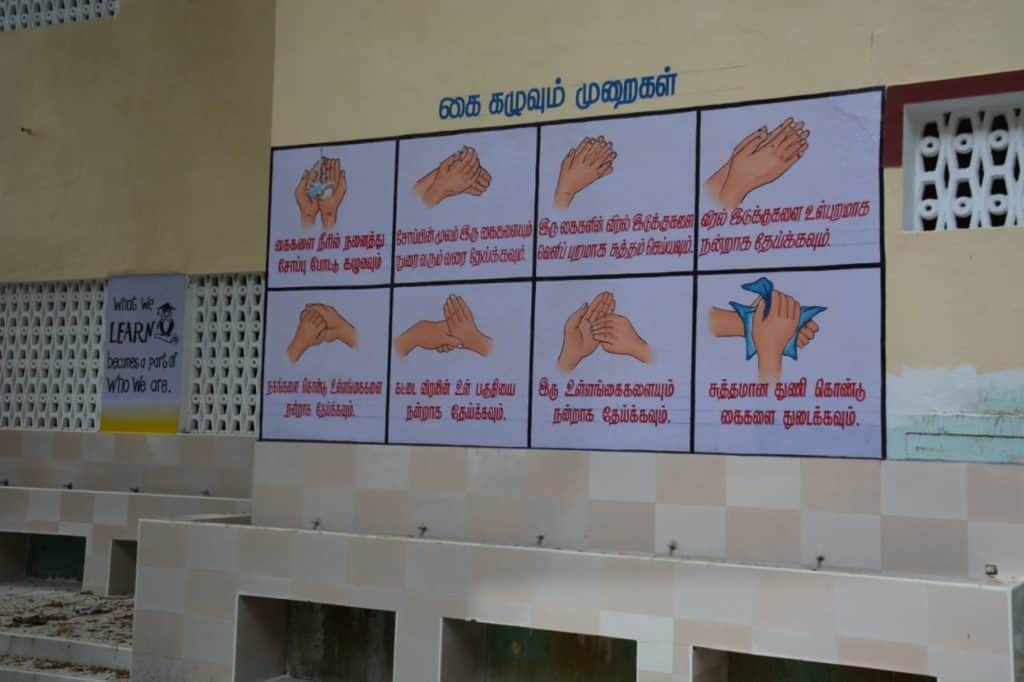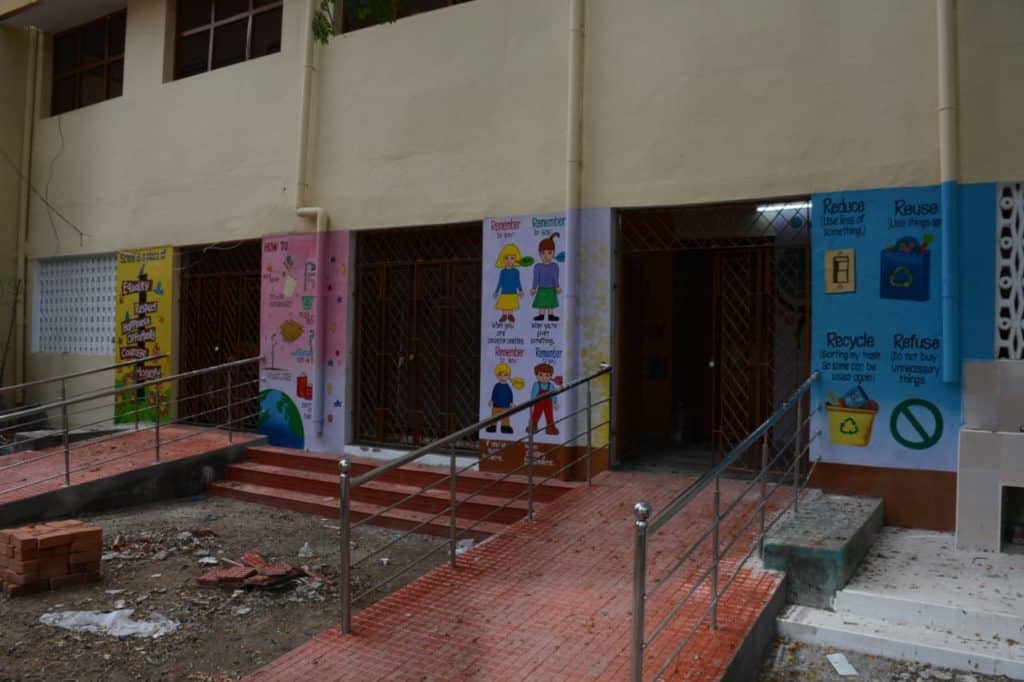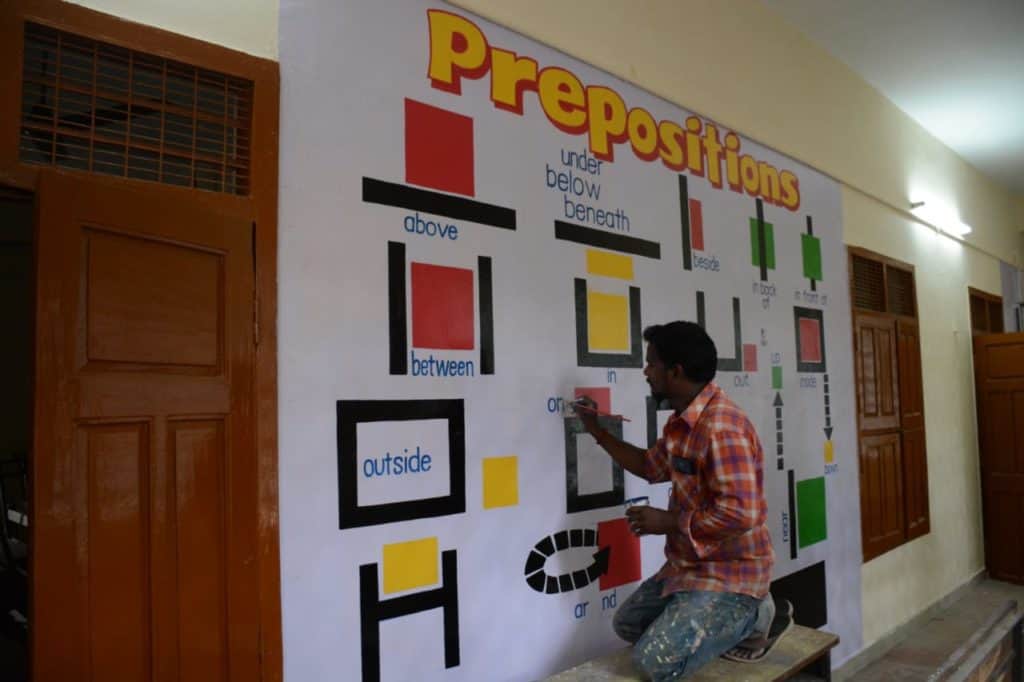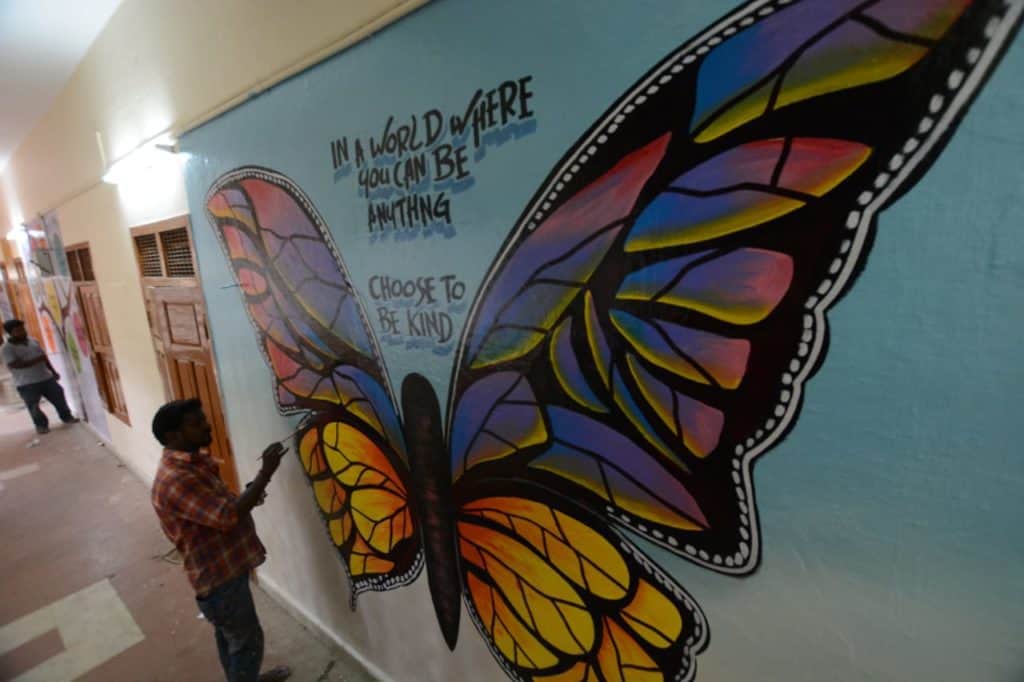Bright welcoming classrooms with mural-decked walls, kitchen gardens on campus to teach kids about sustainable lifestyles, and game-based interactive pedagogy to engage students and bring out the best in them. No, these are not scenes from any private school in the city, but how the Greater Chennai Corporation plans to give a facelift to several of its institutions.
Roping in a not-for-profit organisation called World Vision India, the civic body is beautifying 14 Corporation schools of Chennai. When children go back to the schools after a long break due to COVID-19, they are sure to be pleasantly surprised by the transformation.
“World Vision India approached us with a plan to renovate the corporation schools. Their role is to introduce smart technology and enhance infrastructure in these schools. The civic body will be in charge of the maintenance post renovation,” R Bharathidasan, Education Officer, GCC. “We invite other not-for-profit organisations to come up with similar projects,” he added.
The 14 corporation schools that are all set to change
- Chennai Girls Higher Secondary School, Shenoynagar
- Chennai Primary School, Aminjakarai
- Chennai Middle School, Villivakkam
- Chennai Corporation High School, Walltax Road
- Chennai Corporation Boys Hr. Sec. School, Nungambakkam
- Chennai Corporation High School, Chindaripet
- Chennai Corporation High School, Kilpauk
- Government Higher Secondary School – MMDA Colony
- Chennai Primary School, SM nagar
- Chennai Urdu Government Middle School , Broadway
- Chennai Middle School, Perambur
- Chennai Girls Higher Secondary School , Perambur
- Chennai Middle School, Nungambakkam
What’s new?
At an estimated cost of Rs 4 crore, World Vision India is including smart features such as digital classrooms in these Corporation schools. A total of 43 digital classes will come up in these 14 schools. The organisation has shared an education software with the administration. Lessons are uploaded through the software, where subjects are explained with the help of visuals and graphs.
Teachers accustomed to the conventional mode of teaching are being trained to take classes digitally, and are optimistic about making the switch to smart teaching. “We were initially given online training to learn about the nuances of a digital classroom. As we could not follow it, the organisation agreed to teach us face-to-face,” said Revathy, a teacher at Chennai Corporation High school, Chintadripet.
So, how were the schools selected for the project? World Vision India had conducted a study to understand the lapses in corporation schools in the city (and also Chengalpet district). “We have chosen the schools that are very poor infrastructurally. The intervention is primarily need-based, taking into account the requirements of each school,” explained Mercy Satyavathi, Project Officer, World Vision India.
The requirement of each school is different. While roots of the trees blocked the drainage system in one school, defunct rain water harvesting structures were witnessed in another.
Other major activities that are part of this revamp include construction and renovation of toilets in schools, raising of school compound walls, repair and construction of rainwater harvesting structures, digging of borewells, awareness creation for adolescent girls on menstrual hygiene, provision of sports materials, benches and desks.
“More and more parents will be willing to send their wards to the corporation schools with such changes. I am hopeful that the initiative will lead to increase in the number of admissions next year”
Jesintha L, Head master of Chennai Middle School, Villivakkam
In schools, where there is abundant space, kitchen gardens will be created to encourage students to engage in farming. “The idea is to cultivate the vegetables needed to cook mid-day meals for the students. Students can also develop a hobby out of the initiative,” said Bharathidasan.
Will it last?
The project which is currently in the last leg of completion may be nothing short of a dream for students. But many such beautifying projects at Corporation schools have proved to be damp squibs over the years. Reason: lack of maintenance.
Broken flooring in classrooms, unhygienic restrooms and stained walls are common features in more than 50% of the Corporation schools in Chennai. Time and again, crores have been spent in renovating these schools. Around three years ago, GCC renovated the primary school in Kodambakkam and the Corporation Middle School of Chintadripet. But today, one wouldn’t remotely guess the same, from the condition of the muddy walls and unhygienic restrooms.
“The Corporation is keen on spending money on one-time infrastructure forgetting the fact that maintenance is more important than creating new amenities. For example, smart boards that were a great hit when initiated (a few years ago) are still not being used. Corporation allocates only a meagre amount for upkeep,” said Balaji Sampath, noted educationist and founder and secretary of Association for India’s Development (AID India).
So how can the relapses be preempted? “Besides the management, students are the real custodians of schools. We are educating the water committees (groups of students whose goal is to prevent water wastage in schools), School Maintenance committees and Parent-Teacher Associations about the importance of safeguarding the properties of their schools,” said Mercy.
Clearly, sustained and thorough maintenance is the only way to ensure that such makeovers can last over long periods of time. But only time can tell if the schools will be successful in that.



